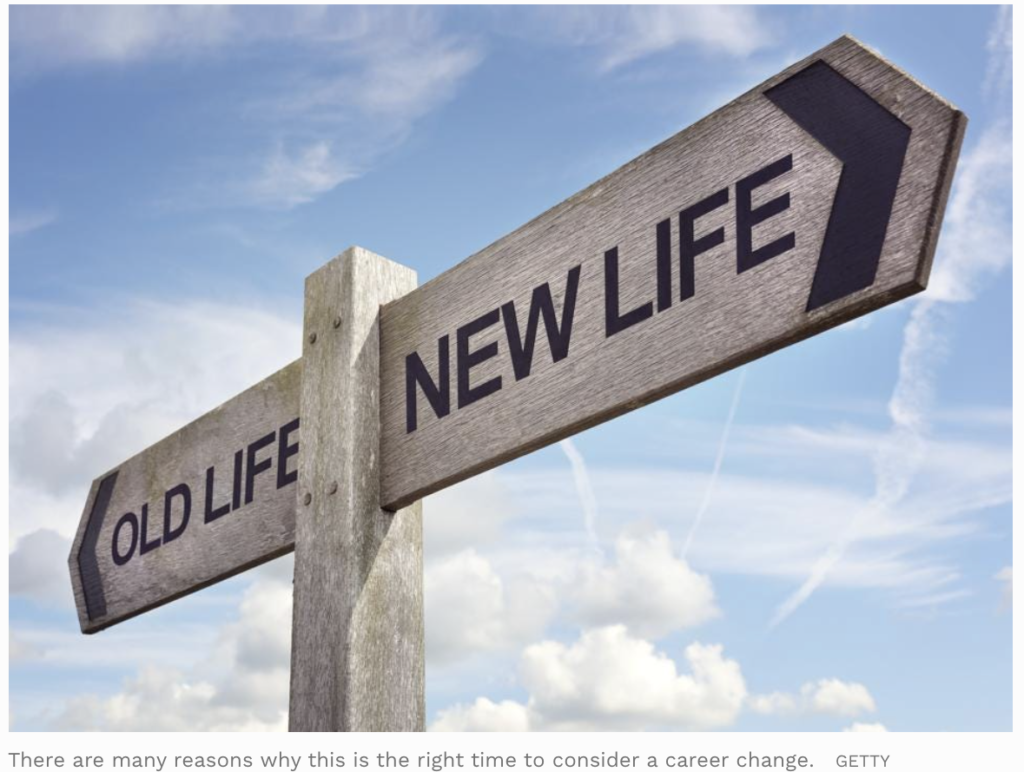
We’re jumping straight into Part Deux of my professional life. Part I is boring. My office jobs were filled with office politics and micromanagers and sycophants that drove me insane. No Michael Scotts or Jim Halpers to save the day. Having reached the zenith of my career, or so I felt, I decided to take a detour. I decided to become a flight attendant.
Before becoming a flight attendant, I had visited 33 countries and a handful of states. I’ve been traveling since I was a toddler and while I wouldn’t have been able to keep track of my adventures as a wee little thing, I probably should’ve started a blog in the early 2000s—it was suggested to me many times because I was traveling a lot, but I always balked at the idea of sharing my personal stories with the public.
Fast-forward twenty plus years, and I plan to do just that: share my stories, boring or crazy, with the public.
THE DETOUR
I’m calling my career change in 2018 “the detour” because I needed a break. Becoming a flight attendant wasn’t my dream job and it wasn’t a long-term solution to my problem. My problem: I was bored as an executive assistant, and I didn’t know what else to do professionally. I wasn’t interested in playing politics to climb the ladder in companies that I had no interest in. Work for me was always work, a way to fund my lifestyle, not a passion. What better way to maintain my traveling lifestyle then to become a flight attendant?
There’s a ton of literature on changing careers: how to do it, when do it, what to do and what not to do, personality tests to match your career options, none of which I’m going to discuss here. You name it it’s out there, but there was one piece of information I could never find for the change I wanted to make. There was no reference in the articles, blogs, and vlogs I consulted that mentioned how much money one needs to save up before making a career change. I’m aware that budgets are subjective, but it would’ve been nice to see actual or ballpark figures.

And if I’m being completely honest, what’s the issue with discussing money? The world revolves around money. We hustle and work to make money. Without either of those two things, we won’t have money to spend or invest or save. Why all the secrecy?
At the beginning of 2018, I resolved to change my career by the end of the year, so I created a savings goal that I eventually met. I don’t know why I was set on saving this specific amount, but I thought it was a figure that would not only carry me through the training process (I’ll touch on this in a moment) but well into my first year of being a flight attendant.
My savings goal for my career change: $10,000. My salary ($75k) at the time combined with my low rent afforded me the opportunity to save that much money, and my determination to leave my office job by year’s end made me conscious of how to spend my money throughout the year. I’m being as forthcoming about my career change for two reasons: 1) I want to help anyone who is looking to become a flight attendant or who is looking to make a career change that requires a pay cut; 2) I’m following in the steps of Paul Downs, who wrote an amazing book about his small business. In Boss Life: Surviving My Own Small Business, he discusses how much it costs to run a small business. He was very candid about discussing money, and I think that level of honesty made the book that much more interesting.
I’ve been out of the loop since I first applied for a flight attendant position in 2018, so I hope these conversations are no longer taboo between or among candidates and seasoned flight attendants. I truly believe an open conversation about what it costs to make a career change, especially if you’re looking to go into aviation, would be beneficial rather than detrimental.
It was important to me to save ten thousand dollars because I learned that many airlines do not pay for training, that meal stipends, if any, do not cover three meals a day for the duration of the training process (one of my classmates spent her stipend in the first week of training), and that a trainee doesn’t have the job until he/she passes training. If at any point during the training process, your first week or on your graduation day (one of my friend’s classmates was asked to leave on graduation day because he was in violation of the Appearance and Standards code; he altered his uniform), you’re asked to leave, say hello to the unemployment line because that’s where you’re landing (pun intended).
All of this is to say that you should plan for the best- and worst-case scenarios. The worst-case scenario is that you’re asked to leave training for one reason or other. Goodbye aviation career! Hello unemployment line. You could ask for your old job back, but I would advise against this. There’s no point moving backward when life moves forward. I would never do this. And even if I did do this, it wouldn’t go down very well.
“Hi. X company? Yes, I’d like my old job back. Oh, did I say I worked for a micromanager who never said, ‘Good morning’? I didn’t mean that.” Disconnect tone. “Hello? Anyone there?”
The best-case scenario is that you pass your IOE (initial operating experience), and you graduate training.
YOU NOW HAVE WINGS!

Fast-forward four weeks. I graduated training and received my training pay.
The training pay was $1,200 minus taxes, so I received an estimated $650. I was fortunate enough to return home for a few days before starting my first trip. Two or three of my classmates had their first trip two-three days after we graduated, which was very unfair. I understood then that we signed up for the unpredictable, but the company had a way to give all of us a chance to go back home and celebrate the holidays, plan our commutes and living arrangements in our new base, and rest after an exhausting four weeks. I was told that the company changed its policy and now allows a week or a week and a half in between graduation and a new hire’s first trip.
I was also very fortunate to have a good friend in West Hollywood, California, who allowed me to stay with him for the two months I was based on the West Coast. There were a few classmates who were commuting from the East Coast in between trips. A few flight attendants found crash pads near the base, which were expensive compared to other bases. I believe the crash pads around the base were $200-$350, and you had to Uber (I detest Uber) to the airport. Crazy! There were a few times I split a hotel room with classmates, which cut down the cost to $30 per person. The price came with a minor inconvenience: there were four flight attendants to a room. It beat paying full price for a hotel room (insert shrug emoji).
By the third month, I was awarded a base on the East Coast. While I was no longer three thousand miles from my home in New York City, my commute sucked and it cost me money. The crash pads around my new base cost $190-$220, and you had to Uber (see previous comment) to and from the airport. I did the math one day, even though I’m not good at math, and the cost of a crash pad equaled four nights at a hotel by the airport. A little less if you split it with another flight attendant.
Since I was new and the idea of sharing space for prolonged periods with anyone other than me, myself, & I seemed downright unthinkable, I chose the hotel option. When I could split the cost with another flight attendant, I did. When I couldn’t, I had the room to myself. There are pros and cons to everything in life because nothing is complete.

By the end of August 2019, my savings account had a balance of $943. The balance disappeared because I was the victim of a complete account takeover. Yeah… My bank accounts were hacked into using the sound of my voice when I answered a phone call from an unknown number.
First, I have a witness (someone didn’t believe me when I posted my story on Instagram). My friend had just finished a trip, and he offered to drive me up to New Jersey where I could catch a train into NYC. The alternative would have been to wait for the 9:00 pm flight to ISP, take a taxi to the LIRR, and then wait for who knows how long for that train to take me to another train. What was supposed to be a chill ride complete with funny/horror stories of our recent trips was replaced by my bawling. I cried my eyes out because I had been left with empty bank accounts.
Second, yes, I learned my lesson. I never answered calls from unknown callers before, but the circumstances on the plane (we had an emergency mid-flight) and the successive texts about suspicious charges when we landed led me to answer a call I would have never answered under normal circumstances. Shit happens.
The other important lesson I learned by summer’s end was that I needed to forgo the hotel stays. A much cheaper option (free option) and one many flight attendants, both junior and senior, choose is the base’s lounge. While it was never encouraged, it was never discouraged. I purchased a sleeping bag for $35 at Target, my first (I have never been camping), because the lounge was as cold as an ice box.
It didn’t make any sense to me to sleep in the base’s lounge at the beginning, but it made sense once I saw the balance of my savings account. I met another flight attendant who packed her sleeping bag in her suitcase because she refused to pay for hotels or crash pads. That was comforting to know.
I was in uncharted territory, but I made it work. For the remainder of 2019, I slept in the lounge when I needed to. I began to look at other bases to see if the commute would be better, and I began to pick up trips from another base to test the waters.
I have never been afraid of stepping outside my comfort zone. My new job was different than anything I had done since my first full-time office job in 2001. I asked myself repeatedly, “Did I do the right thing? Is this really what I want?”
I became a flight attendant because I wanted a break to figure out what I really want to do with my professional life. Aviation offers something no office job could ever offer. Freedom. Freedom from having to take work home; freedom from having to work for a micromanager; freedom from office politics. Flight attendants have a level of flexibility and freedom no other job is able or willing to afford its employees.
My first year as a flight attendant was a test of endurance and patience; it strengthened my endurance and patience. Little did I know that my second year would become a question of survival.
But you are a survivor, and clearly you did, as anyone who knows you knew you would.
Talking about the financial stress of training and first-year flying is making me laugh, cry, and deeply feel the financial losses. Lol! Great depiction of what FA life truly is like outside of the “glam.”